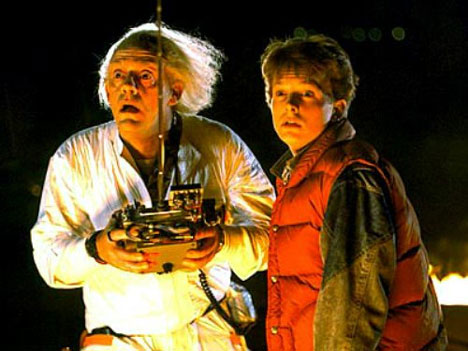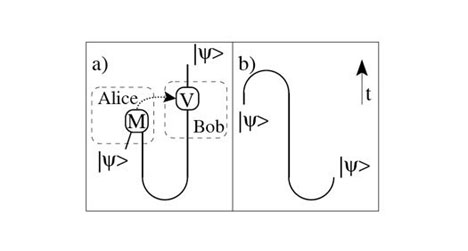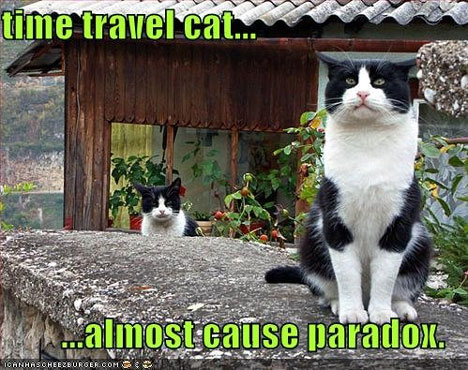
As anxious as we are to travel through time, that pesky grandfather paradox always gives us pause. For the uninitiated, the grandfather paradox is the troubling problem that a time traveler runs into when journeying to the past: it’s the possibility that a time traveler could do something in the past that will prevent his or her grandparents from meeting and conceiving one of the traveler’s parents, thus negating the traveler’s own existence. A group of scientists think they have solved the problem with a bizarre, yet completely reasonable, quantum theory.

The theory is based on postselection, one of the most fascinating components of quantum computing. It’s the quality that allows all possible solutions for a problem to be computed at the same time, with the most correct solution being chosen afterward. Theoretically, this principle combined with the principle of quantum entanglement would allow particles to travel backward in time in a paradox-free quantum time machine.

Two big benefits of this theoretical time travel method: no bending of the space-time continuum is needed, and the grandfather paradox is eliminated. The second benefit is true because no matter what happens, there was already a chance of it happening…in other words, there are no surprises in quantum time travel. The theory hasn’t yet been tested, but the entire mind-blowing paper can be read here (if you can handle all that quantum theory).

